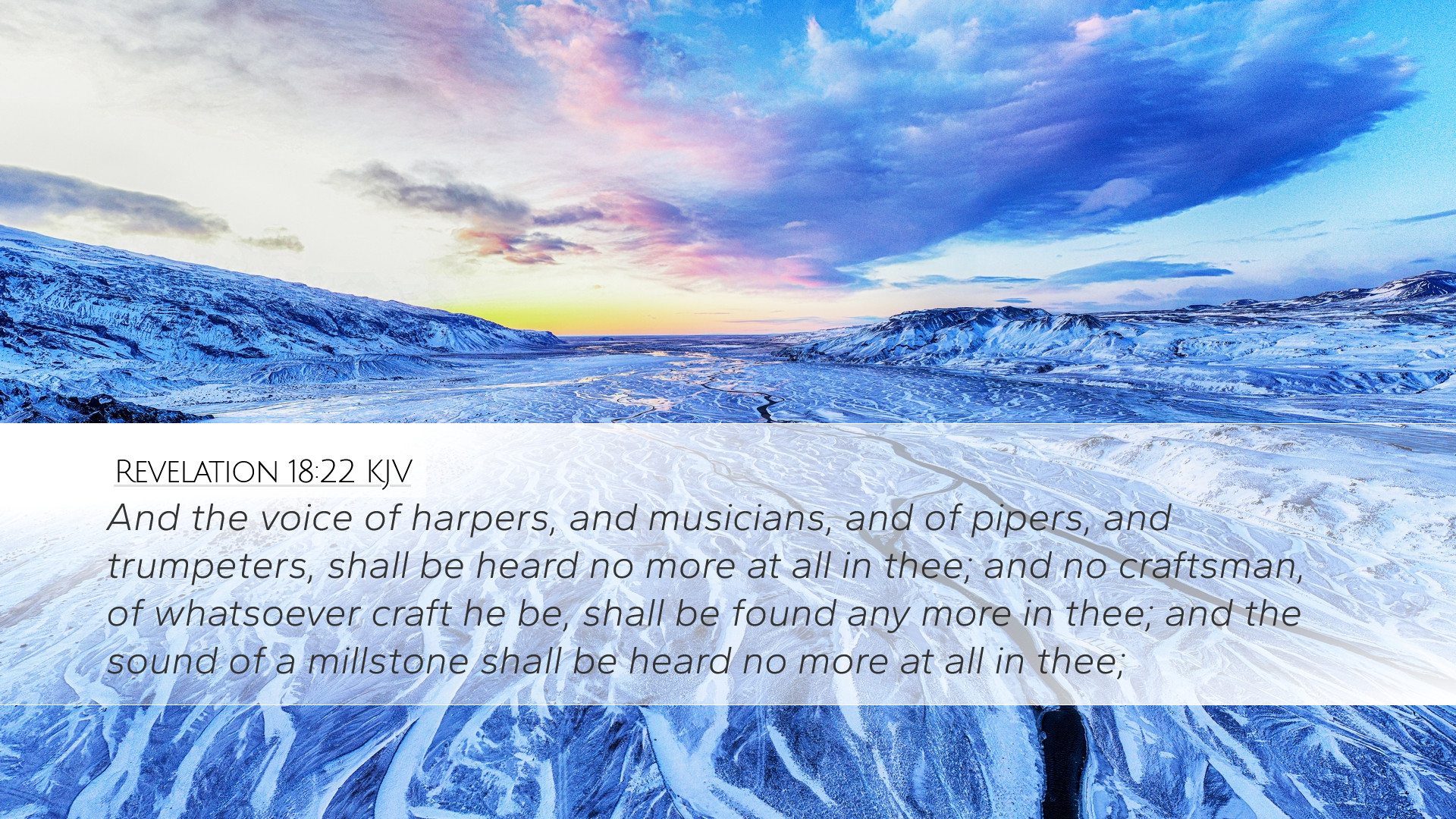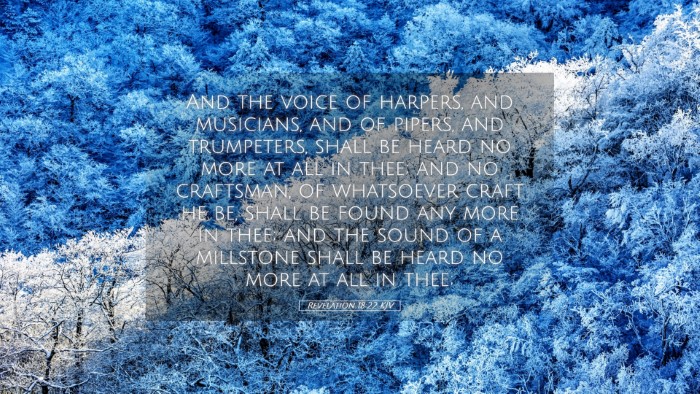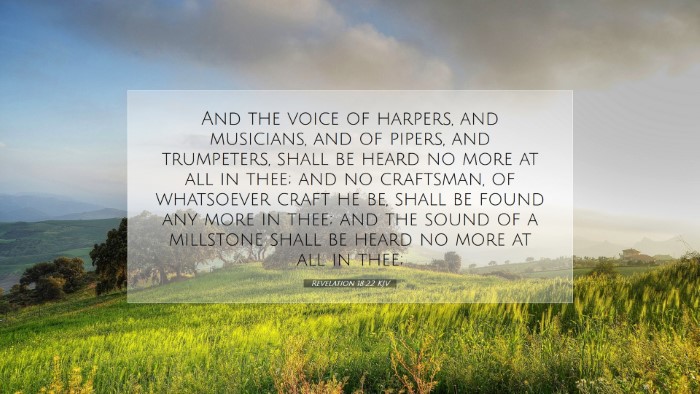Commentary on Revelation 18:22
The verse Revelation 18:22 reads: "And the voice of harpers, and musicians, and of pipers, and trumpeters,
shall be heard no more at all in thee; and no craftsman, of whatsoever craft he be, shall be found any more in thee;
and the sound of a millstone shall be heard no more at all in thee." This verse is part of the broader context
of the fall of Babylon, symbolizing the destruction of a great empire associated with sin and vice.
Contextual Overview
This chapter is heavily laden with imagery that speaks to the complete and utter destruction
of what Babylon represents—a symbol of opposition to God and the kingdom of righteousness.
Understanding the implications of these words involves delving into the meaning of various elements
listed here: music, crafts, and everyday life.
Insights from Matthew Henry
Matthew Henry emphasizes that the cessation of music within Babylon represents a dramatic
shift from joy to desolation. He notes that music, which is often tied to celebrations and cultural
richness, will vanish as the city encounters divine judgment. This serves as a stark illustration of how
the pleasures of the world cannot withstand the weight of God’s retribution against sin.
-
Loss of Joy: Henry points out that the festive sounds of harpers and musicians are
emblematic of the joy that Babylon once experienced. Their absence signifies a profound loss,
illustrating that with divine judgment comes the end of worldly pleasure.
-
The End of Crafts: The mention of craftsmen indicates the total economic downfall
that accompanies Babylon's collapse. Crafts are typically associated with skill and artistry, yet
here they are rendered useless as the city ceases to exist. Henry draws parallels to how cultures
may flourish in worldly endeavors but are ultimately subject to God’s sovereignty.
Insights from Albert Barnes
Albert Barnes interprets this verse within the broader themes of judgment and the consequences
of turning away from God. He focuses on the phrase "no craftsman... shall be found anymore,"
suggesting that the destruction of Babylon is both physical and spiritual.
-
Symbol of Complete Desolation: Barnes confirms that the absence of music and crafts
reflects a complete erasure of the cultural identity of Babylon. It is a declaration that,
in the face of divine authority, human achievements and pleasures are transient and ultimately futile.
-
Warning to the Unrepentant: Barnes warns that this passage serves as a cautionary tale
for those who allow themselves to be entangled in the allure of worldly pleasures, urging readers to
recognize the fleeting nature of such pursuits.
Insights from Adam Clarke
Adam Clarke’s commentary delves into the historical and cultural implications of the sounds mentioned
in the verse. He explores the significance of music and craft in the life of a community.
Clarke argues that these sounds represent the vitality and cultural expressions of society.
-
Cultural Reflection: Clarke elaborates on how music and craftsmanship are innate aspects
of a thriving community. Their absence in Babylon signifies not just physical destruction but also
the obliteration of culture and identity, reflecting the deep impact of divine wrath.
-
Millstone's Significance: The silence of the millstone, as highlighted by Clarke, denotes
the cessation of daily life. It symbolizes the end of sustenance and the routine activities that
characterize existence, further reinforcing the theme of ultimate nullification.
Theological Significance
These insights intertwine to underline theological themes pertinent for pastors, students, and scholars.
The passage invites reflection on the nature of judgment and the finality of divine retribution against
those who persist in rebellion against God. The stark contrasts presented in the passage—life versus death,
joy versus despair—invite individuals to consider their own lives in relation to the eternal.
Applications for Modern Believers
-
Evaluating Cultural Affections: This text challenges believers to evaluate what
cultural sounds and pursuits they invest in, urging them to ground their lives in that which is truly lasting—
namely, their relationship with God.
-
Warning Against Worldly Allurements: Pastors can draw upon this verse to remind
congregations of the dangers of complacency and the seductive nature of material success and
cultural relevance at the expense of spiritual vitality.
Conclusion
Revelation 18:22 serves as a stark reminder of God's sovereignty over human endeavors and the
inevitable consequences of turning away from Him. Through the amalgamation of insights from Henry,
Barnes, and Clarke, we uncover the layers of meaning encapsulated in this verse. It speaks to both
the historical narrative of Babylon's fall and serves as a timeless admonition to remain vigilant,
prioritizing eternal values over transitory pleasures.


